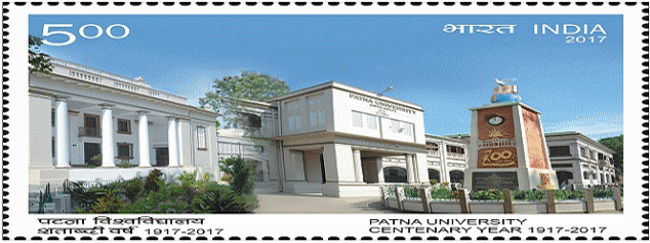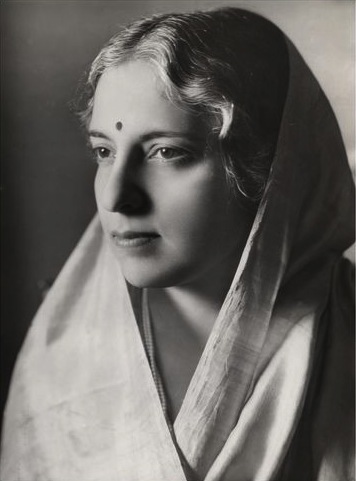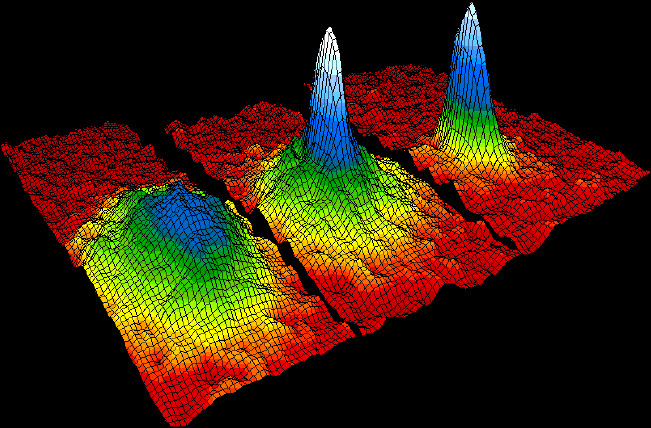|
Wheeler Senate Hall
The Wheeler Senate Hall is a convention centre of the Patna University situated in the heart of Ashok Rajpath, Patna. History The structure was built to host Patna university meetings, convocations and other functions. Raja Devaki Nandan Prasad Singh of Munger had offered to meet the entire cost of building the senate hall in 1925 and had spent nearly 1.75 lakh on the hall. It got ready in 1926 and was inaugurated the same year by the then Governor of Bihar and Orissa province and Chancellor of the University Sir Henry Wheeler. Before the construction of the senate hall, meetings, conferences and convocations of the Patna University were held at different places in the city. During the first five years of PU's existence from 1917 to 1922, it was allowed to use a wing of the Patna High Court as its temporary office. Meetings of the faculties were held in the hall located at the new college, now known as Patna College, while senate meetings were held in the conference room ... [...More Info...] [...Related Items...] OR: [Wikipedia] [Google] [Baidu] |
University Of Patna
Patna University is a public state university in Patna, Bihar, India. It was established on 1 October 1917 during the British Raj. It is the first university in Bihar and the seventh oldest university in the Indian subcontinent in the modern era. It offers different undergraduate and postgraduate degree level courses. History Patna University was established by an Act of the Imperial Legislative Council passed in September 1917. It started the journey in October 1917 as an affiliating and examining body when JG Jennings took charge of this university as the first vice-chancellor. In the modern era of India, it is one of the oldest universities in this region. Later in 1919, the governing bodies of the university—the Senate and the Syndicate—were formed. The iconic Wheeler Senate House of the Patna University was built in 1926 for which Raja Devaki Nandan Prasad of Munger donated the money. When the university was first established it had jurisdiction over all higher educat ... [...More Info...] [...Related Items...] OR: [Wikipedia] [Google] [Baidu] |
Vijaya Lakshmi Pandit
Vijaya Lakshmi Pandit ('' née'' Swarup Nehru; 18 August 1900 – 1 December 1990) was an Indian diplomat and politician who was the 6th Governor of Maharashtra from 1962 to 1964 and 8th President of the United Nations General Assembly from 1953 to 1954, the first woman appointed to either post. Hailing from a prominent political family, her brother Jawaharlal Nehru was the first Prime Minister of independent India, her niece Indira Gandhi the first female Prime Minister of India and her grand-nephew Rajiv Gandhi was the sixth Prime Minister of India. Despite her minimal education ( she was schooled entirely at home), Nehru showered her with diplomatic favours, sending Pandit to London as India's most important diplomat after serving as india's envoy to the Soviet Union, the United States and the United Nations. Her time in London offers insights into the wider context of changes in Indo–British relations. Her High-Commissionership was a microcosm of inter-governmental relat ... [...More Info...] [...Related Items...] OR: [Wikipedia] [Google] [Baidu] |
1926 Establishments In India
Nineteen or 19 may refer to: * 19 (number), the natural number following 18 and preceding 20 * one of the years 19 BC, AD 19, 1919, 2019 Films * 19 (film), ''19'' (film), a 2001 Japanese film * Nineteen (film), ''Nineteen'' (film), a 1987 science fiction film Music * 19 (band), a Japanese pop music duo Albums * 19 (Adele album), ''19'' (Adele album), 2008 * ''19'', a 2003 album by Alsou * ''19'', a 2006 album by Evan Yo * ''19'', a 2018 album by MHD (rapper), MHD * ''19'', one half of the double album ''63/19'' by Kool A.D. * ''Number Nineteen'', a 1971 album by American jazz pianist Mal Waldron * XIX (EP), ''XIX'' (EP), a 2019 EP by 1the9 Songs * 19 (song), "19" (song), a 1985 song by British musician Paul Hardcastle. * "Nineteen", a song by Bad4Good from the 1992 album ''Refugee (Bad4Good album), Refugee'' * "Nineteen", a song by Karma to Burn from the 2001 album ''Almost Heathen''. * Nineteen (song), "Nineteen" (song), a 2007 song by American singer Billy Ray Cyrus ... [...More Info...] [...Related Items...] OR: [Wikipedia] [Google] [Baidu] |
Convention Centres In Patna
Convention may refer to: * Convention (norm), a custom or tradition, a standard of presentation or conduct ** Treaty, an agreement in international law * Convention (meeting), meeting of a (usually large) group of individuals and/or companies in a certain field who share a common interest ** Fan convention, a gathering of fans of a particular media property or genre ** Gaming convention, centered on role-playing games, collectible card games, miniatures wargames, board games, video games, and the like ** Political convention, a formal gathering of people for political purposes * Trade fair * Bridge convention, a term in the game of bridge * Convention (Paris Métro), a station on line 12 of the Paris Métro in the 15th arrondissement * "The Convention" (''The Office'' episode) * "Convention" (''Malcolm in the Middle'' episode) See also * Conference * National Convention (other) The National Convention was the first republican legislative body of the French Revolution, th ... [...More Info...] [...Related Items...] OR: [Wikipedia] [Google] [Baidu] |
Buildings And Structures In Patna
A building, or edifice, is an enclosed structure with a roof and walls standing more or less permanently in one place, such as a house or factory (although there's also portable buildings). Buildings come in a variety of sizes, shapes, and functions, and have been adapted throughout history for a wide number of factors, from building materials available, to weather conditions, land prices, ground conditions, specific uses, prestige, and aesthetic reasons. To better understand the term ''building'' compare the list of nonbuilding structures. Buildings serve several societal needs – primarily as shelter from weather, security, living space, privacy, to store belongings, and to comfortably live and work. A building as a shelter represents a physical division of the human habitat (a place of comfort and safety) and the ''outside'' (a place that at times may be harsh and harmful). Ever since the first cave paintings, buildings have also become objects or canvasses of much artistic ... [...More Info...] [...Related Items...] OR: [Wikipedia] [Google] [Baidu] |
Jawaharlal Nehru
Pandit Jawaharlal Nehru (; ; ; 14 November 1889 – 27 May 1964) was an Indian anti-colonial nationalist, secular humanist, social democrat— * * * * and author who was a central figure in India during the middle of the 20th century. Nehru was a principal leader of the Indian nationalist movement in the 1930s and 1940s. Upon India's independence in 1947, he served as the country's prime minister for 16 years. Nehru promoted parliamentary democracy, secularism, and science and technology during the 1950s, powerfully influencing India's arc as a modern nation. In international affairs, he steered India clear of the two blocs of the Cold War. A well-regarded author, his books written in prison, such as ''Letters from a Father to His Daughter'' (1929), '' An Autobiography'' (1936) and ''The Discovery of India'' (1946), have been read around the world. During his lifetime, the honorific Pandit was commonly applied before his name in India and even today too. T ... [...More Info...] [...Related Items...] OR: [Wikipedia] [Google] [Baidu] |
Rabindranath Tagore
Rabindranath Tagore (; bn, রবীন্দ্রনাথ ঠাকুর; 7 May 1861 – 7 August 1941) was a Bengali polymath who worked as a poet, writer, playwright, composer, philosopher, social reformer and painter. He reshaped Bengali literature and music as well as Indian art with Contextual Modernism in the late 19th and early 20th centuries. Author of the "profoundly sensitive, fresh and beautiful" poetry of ''Gitanjali'', he became in 1913 the first non-European and the first lyricist to win the Nobel Prize in Literature. Tagore's poetic songs were viewed as spiritual and mercurial; however, his "elegant prose and magical poetry" remain largely unknown outside Bengal. He was a fellow of the Royal Asiatic Society. Referred to as "the Bard of Bengal", Tagore was known by sobriquets: Gurudev, Kobiguru, Biswakobi. A Bengali Brahmin from Calcutta with ancestral gentry roots in Burdwan district* * * and Jessore, Tagore wrote poetry as an eight-yea ... [...More Info...] [...Related Items...] OR: [Wikipedia] [Google] [Baidu] |
Sisir Kumar Mitra
Sisir Kumar Mitra (or ''Shishirkumar Mitra'') MBE, FNI, FASB, FIAS, FRS (24 October 1890 – 13 August 1963) was an Indian physicist. Early life and education Mitra was born in his father's hometown of Konnagar, a suburb of Kolkata (then Calcutta) located in the Hooghly District in the Bengal Presidency (present-day West Bengal). He was the third son of Joykrishna Mitra, who was a schoolteacher at the time of Mitra's birth, and Saratkumari, a medical student whose family came from Midnapore. While Mitra's paternal family were orthodox Hindus, his mother's family were adherents of the progressive Brahmo Samaj, and were noted in Midnapore for their advanced outlook. In 1878, Joykrishna Mitra had joined the Brahmo Samaj and married his wife, against the wishes of his family, who responded by severing ties with him. As a consequence, the newly wed couple moved to Saratkumari's hometown of Midnapore, where Joykrishna and his wife had two sons – Satish Kumar and Santosh Kumar – ... [...More Info...] [...Related Items...] OR: [Wikipedia] [Google] [Baidu] |
Satyendra Nath Bose
Satyendra Nath Bose (; 1 January 1894 – 4 February 1974) was a Bengali mathematician and physicist specializing in theoretical physics. He is best known for his work on quantum mechanics in the early 1920s, in developing the foundation for Bose statistics and the theory of the Bose condensate. A Fellow of the Royal Society, he was awarded India's second highest civilian award, the Padma Vibhushan, in 1954 by the Government of India. The class of particles that obey Bose statistics, bosons, was named after Bose by Paul Dirac. A polymath, he had a wide range of interests in varied fields, including physics, mathematics, chemistry, biology, mineralogy, philosophy, arts, literature, and music. He served on many research and development committees in sovereign India. Early life Bose was born in Calcutta (now Kolkata), the eldest of seven children in a Bengali Kayastha family. He was the only son, with six sisters after him. His ancestral home was in the village Bara Jagulia, ... [...More Info...] [...Related Items...] OR: [Wikipedia] [Google] [Baidu] |
Meghnad Saha
Meghnad Saha (6 October 1893 – 16 February 1956) was an Indian astrophysicist who developed the Saha ionization equation, used to describe chemical and physical conditions in stars. His work allowed astronomers to accurately relate the spectral classes of stars to their actual temperatures. He was elected to the Parliament of India in 1952 from Calcutta. Biography Meghnad Saha was born in 1893 in a very poor family in Shaoratoli, a village near Dhaka-Bikrampur, in the former Bengal Presidency of British India (in present-day Village- Shaoratoli, Thana- Kaliakair, District- Gazipur, Bangladesh). Son of Jagannath Saha (a grocer) and Smt. Bhubneshwari Devi, Meghnad struggled to rise in life. During his early schooling he was forced to leave Dhaka Collegiate School because he participated in the Swadeshi movement. He earned his Indian School Certificate from Dhaka College. He was also a student at the Presidency College, Kolkata and Rajabazar Science College CU. As a stude ... [...More Info...] [...Related Items...] OR: [Wikipedia] [Google] [Baidu] |
Jagadish Chandra Bose
Sir Jagadish Chandra Bose (;, ; 30 November 1858 – 23 November 1937) was a biologist, physicist, Botany, botanist and an early writer of science fiction. He was a pioneer in the investigation of radio microwave optics, made significant contributions to botany, and was a major force behind the expansion of experimental science on the Indian subcontinent. Bose is considered the father of Bengali science fiction. He invented the crescograph, a device for measuring the growth of plants. Bose (crater), A crater on the moon was named in his honour. He founded Bose Institute, a premier research institute in India and also one of its oldest. Established in 1917, the institute was the first interdisciplinary research centre in Asia. He served as the Director of Bose Institute from its inception until his death. Born in Munshiganj, Bengal Presidency, during British India, British governance of India (now in Bangladesh), Bose graduated from St. Xavier's College, Calcutta (now Kolkata, W ... [...More Info...] [...Related Items...] OR: [Wikipedia] [Google] [Baidu] |
Jayaprakash Narayan
Jayaprakash Narayan (; 11 October 1902 – 8 October 1979), popularly referred to as JP or ''Lok Nayak'' (Hindi for "People's leader"), was an Indian independence activist, theorist, socialist and political leader. He is remembered for leading the mid-1970s opposition against Prime Minister Indira Gandhi, for whose overthrow he had called for a "Bihar Movement, total revolution". His biography, ''Jayaprakash,'' was written by his nationalist friend and the writer of Hindi literature, Rambriksh Benipuri. In 1999, he was posthumously awarded the Bharat Ratna, India's highest civilian award, in recognition of his social service. Other awards include the Magsaysay award for Public Service in 1965. Early life Jayprakash Narayan was born on 11 October 1902 in the village of Sitabdiara, Ballia district, United Provinces of British India, United Provinces, British India (present-day Saran district, Saran district, Bihar, India). Sitabdiara is a large village, straddling two states ... [...More Info...] [...Related Items...] OR: [Wikipedia] [Google] [Baidu] |






